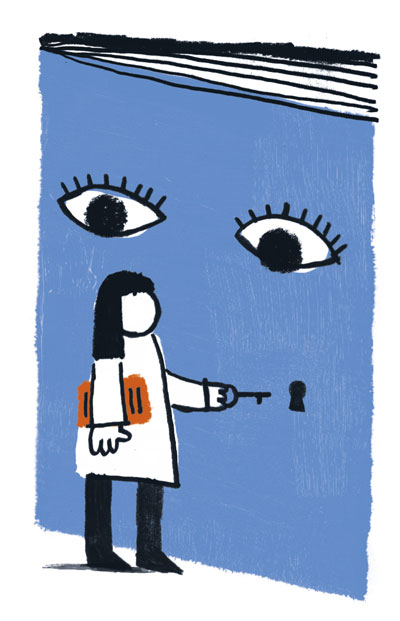 elisa cararetoThe journal Nature Plants used its editorial in the June 2017 issue to comment on an article by biologist Patrice Dunoyer, a researcher at the Molecular Plant Biology Institute of the French National Center for Scientific Research (CNRS). However, the editorial did not focus on the finding of the paper, a description of a mechanism used by a virus that attacks peanuts, but instead justified the fact that the journal had accepted the manuscript for publication. This is because the CNRS Group to which Dunoyer belonged until 2015, headed by Olivier Voinnet, had been involved in a scandal surrounding the copying and manipulation of images that led to the retraction of eight scientific articles from journals such as Science, The Embo Journal and Plant Cell and corrections in another 20 papers. Voinnet was suspended from the CNRS for two years and had his financing from the Swiss National Science Foundation suspended for three years. Dunoyer, who was the first author of three of the articles mentioned, was suspended for one month and lost his laboratory, although the CNRS claims that its deactivation was not related to the manipulation case.
elisa cararetoThe journal Nature Plants used its editorial in the June 2017 issue to comment on an article by biologist Patrice Dunoyer, a researcher at the Molecular Plant Biology Institute of the French National Center for Scientific Research (CNRS). However, the editorial did not focus on the finding of the paper, a description of a mechanism used by a virus that attacks peanuts, but instead justified the fact that the journal had accepted the manuscript for publication. This is because the CNRS Group to which Dunoyer belonged until 2015, headed by Olivier Voinnet, had been involved in a scandal surrounding the copying and manipulation of images that led to the retraction of eight scientific articles from journals such as Science, The Embo Journal and Plant Cell and corrections in another 20 papers. Voinnet was suspended from the CNRS for two years and had his financing from the Swiss National Science Foundation suspended for three years. Dunoyer, who was the first author of three of the articles mentioned, was suspended for one month and lost his laboratory, although the CNRS claims that its deactivation was not related to the manipulation case.
In the editorial, Chris Surridge, editor-in chief of Nature Plants, compared data manipulation to doping in sports, explained the process that led to the punishment already served by Dunoyer, and stated that the journal had not taken any extra care in regard to the French biologist’s article, beyond the care it already takes with all articles accepted for publication: four specialists in the field analyzed the manuscript in two rounds of review, and the raw data used to produce the numbers were provided along with the article. “Decisions about publication are made based on the research submitted and on peer review,” Surridge told the journal The Scientist. “It is not our job to investigate research misconduct or impose sanctions. Our role is to ensure that the papers that are submitted to us and are ultimately published are as accurate and reliable as possible irrespective of who the authors are.”
Publication of the editorial shows that there is no consensus among journal editors about what to do in one of these situations. In 2011, the American Society for Microbiology prohibited physician Ramón Cisterna, of Hospital Barsuto, in Bilbao, Spain, from publishing articles in its journals for two years, after he admitted plagiarizing an article from Brazilian professor Arnaldo Lopes Colombo, of the Federal University of São Paulo (Unifesp).
Bernd Pulverer, editor-in-chief of Embo Journal, told The Scientist that he would not refuse to receive a manuscript such as the one by Dunoyer, but would take additional precautions, such as an analysis beyond the routine evaluation and the requirement to present the raw research data, which is not normally required by his publication.
Republish